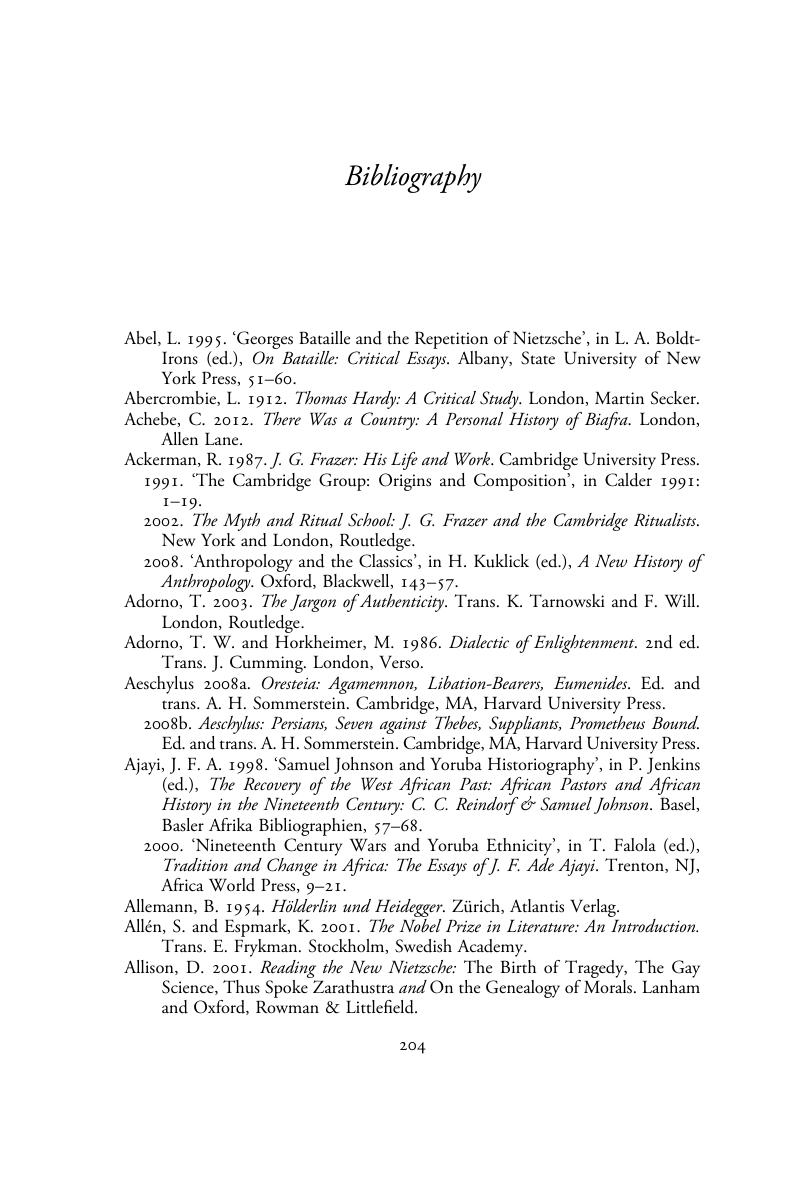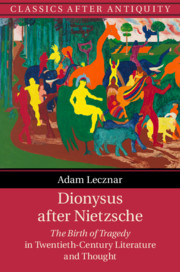Book contents
- Dionysus after Nietzsche
- Classics after Antiquity
- Dionysus after Nietzsche
- Copyright page
- Epigraph
- Contents
- Series Editors’ Preface
- Acknowledgements and Dedication
- Introduction
- Chapter 1 Corybants, Satyrs and Bulls
- Chapter 2 A Great Kick at Misery
- Chapter 3 In Search of an Absent God
- Chapter 4 What Oedipus Knew
- Chapter 5 Dionysus in Yorubaland
- Conclusion
- Bibliography
- Index
- References
Bibliography
Published online by Cambridge University Press: 27 March 2020
- Dionysus after Nietzsche
- Classics after Antiquity
- Dionysus after Nietzsche
- Copyright page
- Epigraph
- Contents
- Series Editors’ Preface
- Acknowledgements and Dedication
- Introduction
- Chapter 1 Corybants, Satyrs and Bulls
- Chapter 2 A Great Kick at Misery
- Chapter 3 In Search of an Absent God
- Chapter 4 What Oedipus Knew
- Chapter 5 Dionysus in Yorubaland
- Conclusion
- Bibliography
- Index
- References
Summary

- Type
- Chapter
- Information
- Dionysus after Nietzsche<I>The Birth of Tragedy</I> in Twentieth-Century Literature and Thought, pp. 204 - 240Publisher: Cambridge University PressPrint publication year: 2020



